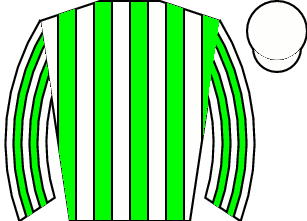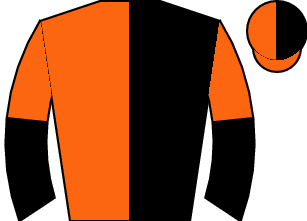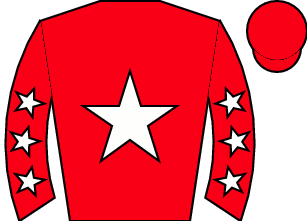Golf expert Ben Coley has three strong fancies for the Irish Open, plus a trio of outsiders for the first-round lead.
Recommended bets
2pts e.w. Rafa Cabrera Bello at 33/1 (1/5 1,2,3,4,5,6,7)
2pts e.w. Martin Kaymer at 33/1 (1/5 1,2,3,4,5,6,7,8)
2pts e.w. Danny Willett at 33/1 (1/5 1,2,3,4,5,6,7,8)
0.5pt e.w. Joakim Lagergren to lead after R1 at 150/1 (1/5 1,2,3,4,5,6)
0.5pt e.w. Nicklas Lemke to lead after R1 at 200/1 (1/5 1,2,3,4,5,6,7,8)
0.5pt e.w. Anton Karlsson to lead after R1 at 200/1 (1/5 1,2,3,4,5,6,7,8)
On a quiet Sunday in July 2009, right about the time Martin Kaymer was tapping in the winning putt in the Scottish Open, Stewart Cink completed a round of golf at Lahinch. It had been a struggle against the elements for a player who had just missed the cut as defending champion at the Travelers, and who had been on a steady but seemingly inexorable slide down the world rankings since winning in Connecticut the previous June.
One week later, one of the nicest men in golf became among the most hated, kicking the cane from Tom Watson's hand and catching the Claret Jug as the old man collapsed to the ground. It had been eight years since Cink's closest encounter with a major and it looked as though his time had passed. Yet here he was, at Turnberry, winning the oldest and most coveted major of them all.
Cink credited Lahinch, as well as Ballybunion and Doonbeg, for the victory which will define his career, knowing it was not a coincidence that he'd performed a similar practice tour in 2007 before finishing sixth at Carnoustie. Speaking after winning the Open, he said: "I don’t think I shot one round last week better than two or three-over par in four days. It was blowing like crazy. And I shot high scores, made some big numbers on holes. I came to Turnberry you would think, maybe a little frustrated or questionable... but, no, I came here knowing that, hey, this is what you get when you play links. I was ready to go."
He's not alone in having sought pure links preparation out on the west coast of Ireland, and specifically here at Lahinch. Greg Norman - a man who, like Cink, won an Open at Turnberry - visited in between his major triumphs at the end of the 1980s; Watson himself has been a visitor; Phil Mickelson is not only a lifetime member, but mentions Lahinch alongside Augusta National as the courses most special to him.
All of which is to say two things at once: that this week's Irish Open makes for must-see television as we get to watch a quality field step onto what in the religion of golf is holy land, and that we're looking at a proper links course here. Not linksy, not links-like, but pure, lay-of-the-land links. The Irish Open should prove an excellent trial for the Open Championship in just a fortnight's time and were it not for the absence of Rory McIlroy and the rest of the world's top 10, there might even have been a risk that the appetiser proves tastier than the main course.
Whether we get conditions like those faced by Cink is another matter. As of now, the County Clare forecast calls for bright but not altogether breezy, although there's enough in the Thursday afternoon dial to worry a little for those starting late. In terms of scoring, it's therefore difficult to know what to expect except to say that Jon Rahm's 24-under-par tournament record is hopefully well out of reach.
Perhaps we'll see something more like the 14-under which Russell Knox shot at Ballyliffin last year, which was also the score when Patrick Sjoland won down the coast at Ballybunion at the turn of the century. It's the latter which many will tell you just does Lahinch for Ireland's best course so if there's one tip you really ought to follow this week, it's to watch as much golf as possible.
Rahm is here to headline the field in McIlroy's absence, and there was a lot to like about his performance at Valderrama last week. Granted, he'd have expected better on Sunday - especially when closing to within three of the lead - but on balance it was an effort to be proud of on an unsuitable golf course. Rahm began the week feeling under the weather but should arrive in Ireland with a spring in his step.
That said, he does still have a little to prove when it comes to this style of golf. Rahm ate Portstewart for breakfast, lunch and dinner two years ago, but an Open Championship record of 59-44-MC is troubling and for all that some will point to last month's Pebble Beach effort as mitigation, this really won't be the same.
There are two particular angles I find interesting this week as we search for that winner. Firstly, class-droppers - in other words, those who have been plying their trade on the PGA Tour - have to be respected, with their form basically worth upgrading.
Russell Knox won this last year having been second in France the week before, his first two starts on the European Tour in 2018. In 2017, it was Rahm who jetted in from his US base to finish 10th in France and then win at Portstewart, while in 2016 McIlroy got the better of Knox, both having featured in the PLAYERS Championship a week earlier.
The changing calendar which means this is now the first Rolex Series event of summer, rather than following on from France and even Wentworth before that, does complicate things somewhat. Still, the message from me is that while it's easy to be drawn to formlines such as those belonging to Jordan Smith, Bernd Wiesberger or even Christiaan Bezuidenhout, making cuts in the USA is often worth more than contending in Europe.
The second angle, one I always pursue in the UK and Ireland, is to have a close look at Scandinavian players as well as those from closer to home. This event has been won by the likes of Mikko Ilonen and Soren Kjeldsen, while Thorbjorn Olesen, Lucas Bjerregaard, Henrik Stenson and Alex Noren are recent winners in Scotland, with the latter also victorious in England and Wales for good measure.
I'll come back to that a little later but for now a selection at long last, with Rafa Cabrera Bello fancied to win his second Rolex Series title almost exactly two years on from his play-off win in the Scottish Open.
Cabrera Bello is one of those to have been chipping away in the US and it's hardly been a stellar year, but he's been making plenty of cuts
Third place in the BMW International Open last time served as a reminder that at this level he has a definite touch of class, and that's further demonstrated by a return of six top-six finishes in 14 European Tour starts since the start of 2018.
The fact that we have to rewind further still to 2017 for the latest win is a slight cause for concern, but since starring as a rookie in the 2016 Ryder Cup he's looked a lot more reliable under the gun and it's simply his schedule which makes collecting silverware difficult.
I've no doubt this is an excellent chance given that as well as winning in Scotland, he has four top-eight finishes in the last seven editions of the Irish Open, a record which includes contending at links courses like Royal Portrush and Royal County Down.
As for The Open, he's made six cuts in seven and was fourth at Birkdale in 2017, so there's a good deal of links pedigree to build a case around.
There's also some encouraging evidence from the PGA Tour that everything is ticking over nicely. Cabrera Bello is gaining strokes in every major department this year, just as he did in 2018, and it was actually an excellent performance on the greens which saw him cut through the pack in Germany.
"I feel the swing is starting to look good again," he said there. "Excited for the events coming up." He has every reason to be and is fancied to put behind him a couple of missed cuts in Ireland over the last two years, and with that contend once more.
The select few who have already chalked up a European Tour start since the US Open - like Cabrera Bello - might be at a further advantage and with that in mind I'll keep the faith in Martin Kaymer.
For the first two rounds in Munich, the decision to back Kaymer on his return home looked a good one as he cantered into the lead. The confidence built through a top-10 finish at the British Masters, contending in elite company at the Memorial Tournament and flushing his way through the US Open appeared to have laid the foundations for a first win in five years and he was a 6/4 chance with 36 holes still to play.
Then came a frustrating Saturday, in which those small, subtly important parts of a round - and of the rebuilding of a reputation - all went against him. Ultimately, a couple of missed putts from inside 10 feet changed the course of the tournament for the two-time major champion and by the end of the round he no longer had a realistic chance to win.
Of course, it was incredibly frustrating to watch and some would say emblematic of Kaymer's travails since winning the US Open at Pinehurst, and they may be right. But an alternative view is that contending in Germany was another important step along the road without being the final one, and that for all the romance of an overdue title coming in his homeland, perhaps that unique pressure was a little too soon.
Certainly, it doesn't hurt that he's not the big name here nor is he the effective tournament host, so with the overwhelming evidence of the last few months being positive, Kaymer is expected to continue moving in the right direction and perhaps get the job done this time.
In terms of the suitability of the Irish Open, there's no doubt Kaymer is an excellent links golfer who is also particularly good in the UK and Ireland. He's won the Dunhill Links and the Scottish Open, after all, while he has two top-10 finishes in just four starts in this event together with three top-15s in the Open Championship.
A classical links where his reliable fairway-finder drives are as useful as brute force is ideal, and so is the fact that when he does miss a green he'll often be able to reach for the putter. To some extent, that mitigates concern around his chipping and pitching from tight lies, which is what cost him victory in Germany this time last year.
Whether or not you're convinced by this argument will likely depend on your overall view of Kaymer. Mine is a favourable one, and everything he's said and so much of what he's done over the last 12 or so weeks suggests that he feels on the cusp of something. He's worth sticking with.
At a similar price, Danny Willett completes the outright staking plan.
It was Willett who pushed Kaymer hardest in the 2010 Dunhill Links, and ever since winning the English Amateur at Royal St George's he's been an effective links golfer as so many from England are.
More recently, his latest start on the European Tour was actually a winning one as he reminded of us of his class with victory in Dubai at the end of 2018, after which he decided to return to America and seek a second win on the PGA Tour where so far he's 'only' won the Masters.
I must admit, Willett's decision to do so surprised me - I worried that it was a little early in his rehabilitation and that he may benefit from sticking to Europe for the time being - but no doubt a fragmented schedule over here, coupled with the opportunities he has over there, played their part.
And to an extent, Willett has been vindicated as months' worth of eye-catching iron play has finally been translated into results, with 41st in the US PGA followed by 27th at the Memorial and then an eye-catching 8-12 run over the fortnight of the Canadian and US Opens.
Those last two performances represent a level of form only a couple of those ahead of him in the market can match, and a formline of 10-3-6-23-WD-6 in this event is as good as it gets without winning.
Willett was sixth at Ballyliffin this time last year and has only gone in one direction since. He's got an excellent chance here if ready to go after three weeks off, which has never been a problem for him in the past. Were he to win, the connection between Lahinch and Augusta, both designed by Dr Alister MacKenzie, would strengthen.
Others on the radar include Andy Sullivan and Thomas Detry, both of whom have been catching the eye quite regularly of late. The latter is of greater potential and he played nicely in Qatar and the British Masters earlier in the year, two worthwhile form guides here.
Erik van Rooyen showed what he can do under links conditions in last year's renewal and the following Open Championship, and he's another who went well in Qatar. Seeing Bezuidenhout win as he did on Sunday can only help van Rooyen in his own quest to get off the mark and he's respected having progressed to the extent that he belongs where he is in the market.
Further down, Ryan Fox often comes alive on these shores but will need to, while it'll be fascinating to see how Abraham Ancer gets on. Like my selections, he's arriving from the PGA Tour when eighth place last time was his best effort of the year. At the end of 2018, Ancer won the Australian Open really impressively and the skills which powered that success are certainly transferable to the links land of Ireland.
However, I'm going to finish the preview by returning to that point about Scandinavians.
Yes, they take up a good chunk of fields on the European Tour, a reflection of the wealth of talent in that part of the world, the popularity of golf, and the fact that we're using a collective term for several individual countries.
Still, the list of Scandinavian winners in the UK and Ireland is long and lengthening. Since 2000, I have it as Marcus Kinhult, Alex Noren, Mikko Ilonen, Soren Kjeldsen, Henrik Stenson, Thomas Bjorn, Thorbjorn Olesen, Lucas Bjerregaard, Anders Hansen, Soren Hansen, Johan Edfors, Patrick Sjoland, Jeppe Huldahl, Robert Karlsson, Steen Tinning, Peter Hedblom and Pierre Fulke - and several of these have obliged more than once.
Unfortunately, I couldn't find a strong fancy from this week's options. Olesen has been playing very poorly, and while Bjerregaard is tempting having produced flashes of high-class form this year, it's hard to know exactly where his game is at present and his record in this event is miserable.
I do, however, have three outsiders to keep a close eye on and am willing to chance all of them in the first-round leader market to small stakes.
First is a name familiar to long-suffering readers - that of Joakim Lagergren.
I put the Swede up at massive odds for both the Made In Denmark and the BMW International Open despite the fact he hadn't made a cut all year before the first of them, and without landing the jackpot wasn't a million miles away.
Indeed since Denmark, Lagergren has made four cuts from four - a notable achievement when you've missed the previous seven - and among this sequence he's bagged a tie for 21st in Germany, which is in fact his best finish since 12th in this very event last year.
Lagergren is definitely on his way back, then, and so much of his best golf points towards another step forward here. His win came by the coast in Sicily, he's been second in Qatar (the best links form guide you'll find outside of links golf), fourth on two occasions in the Dunhill Links, fourth in Madeira, fifth in the Made In Denmark and ninth in the KLM Open.
Throw in the fact that his sole Challenge Tour win came in Northern Ireland and he's high on the shortlist for dark horses only here. That said, he's shorter in a Rolex Series event than he was in Denmark and the first-round leader market looks a more solid bet, particularly as he was one off the lead in Denmark and three shy in Germany.
On both occasions, Lagergren started in the afternoon wave, faring best of the lot at Himmerland and tied second behind Lee Westwood in Germany. He's been starting fast and can do so again here.
Next is Niklas Lemke, who made eight birdies in succession during a second-round 64 at the British Masters, played on a links course.
Lemke faded from second at halfway there, and again played well to a point in Spain last week where on for a similar position before a difficult stretch during the back-nine of round two.
It's interesting that both encouraging efforts came on shorter courses, given that Lemke is hugely powerful, but that's something he alluded to at Hillside when telling reporters that he's better when there's pressure from the tee.
That looks to be the case again here and it's notable that Lemke has played in one previous renewal of the Irish Open, where he opened with a round of 67 to lie sixth after day one. Something similar - and hopefully a little better - might be within his compass.
Finally, the case for Anton Karlsson is similar.
Now in his second year on the European Tour, Karlsson has shown flashes of brilliance and in fact looked like winning the aforementioned Qatar Masters before stumbling late on.
For now, winning a title like this remains highly unlikely but an opening 63 to lead in Belgium and last week's 66 to share second in Spain is enough to suggest he could be worth following in this market.
Going further back, he was also fifth after the first round in Perth and again, there's some form closer to this week's venue as he defied an atypically slow start to finish fourth in the Irish Challenge three summers ago.
Posted at 1800 BST on 01/07/19.














